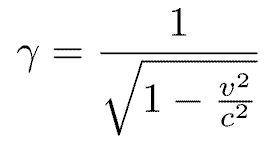 —Psalms 90:04
—Psalms 90:04
- Man's Time
tMan is the time span as seen by us who measure time with radioactive clocks on a world that whirls and spins at a constant rate of speed, more or less. These clocks say the Earth is 4.57 billion years old, and the universe since the Big Bang is 13.7 billion, give or take 110 million.
- God's Time
tGod is the time span as seen by God measuring time on his Timex. We convert 6 days to a fraction of the year by dividing by 365.25, which is the number of days in a year. The .25 is why we add an extra day to the calendar every four years. A more precise estimation of the year is 365.2425, which is why the year 2000 was a leap year when century years are not usually leap years. tGod would also be the elapsed time we see on God's Timex if we could see anyone or anything moving rapidly close to the speed of light.
- God's Speed
v is the velocity of God, which varies as He travels from dense matter into empty space, and beyond where no one has gone before. We will assume that God's velocity during His 6 days of Creation remained fairly constant, or else we may encounter a time paradox.
- Light Speed
c is the maximum speed of anything and everything known: 299,792.458 kilometers per second, or about 186,282 miles per second. Can God go faster at warp speed, and break His own laws? Hmmm...
- The Gamma γ Factor
γ is the amount that time stretches or shrinks on God's Timex according to us who travel no where near the speed of light. Compared to God, humans move slowly at a rather constant rate of speed, closer to 0 miles per second than to light speed.

Notice that as v grows closer to c,
the square root shrinks toward 0, γ thereby increases without limit, and the hands on God's Timex seem, to us human observers, to stand still. Whereas, when God slows down to take a bus and mingle with us mere mortals, v2/c2 approaches 0, both the square root and γ move toward 1, and God's time becomes man's time. All of this is explained somewhat by the Dude in Tron Legacy.

